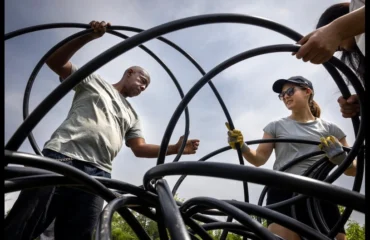University of Michigan partners on multi-institution planning effort for state’s water future
The University of Michigan will work with Michigan State University, Wayne State University, and regional and state stakeholders to craft policies that will ensure safe drinking water at low cost.
Labeled the Michigan Center for Freshwater Innovation (MFIC), the partnership will work with the state’s Department of Environment, Great Lakes and Energy (EGLE) to fulfill the promise of directives issued late last year by Gov. Gretchen Whitmer on safe drinking water.
“We are very pleased that our partnership has been selected to assist the state in identifying ways to increase collaboration among water services and significantly improve water delivery for Michigan residents,” said Glen Daigger, a U-M professor of engineering practice, civil and environmental engineering, who co-leads the center.
“This assignment provides the opportunity for the three MFIC partners to bring our collective knowledge to bear on this important issue and contribute to improved quality of life. Public outreach, coupled with our collective knowledge, will inevitably result in useful suggestions for action at the state level,” he added.
The team will work to facilitate regional collaboration in water services and explore opportunities for shared services. For instance, they will identify both the incentives and roadblocks for public water suppliers in assisting communities outside their service area when a neighboring community’s drinking water is compromised, threatened or unsustainable.
MFIC will also work with stakeholders—engineers, municipal leaders and others—to identify barriers to regional planning efforts and focus on factors that include: current regulations, resources, education and engagement, reduction of lead and other contaminants, and data collection and sharing.
Finally, the group will host roundtable discussions to bring its recommendations to EGLE in November. That plan will consider factors such as: environmental justice and equity concerns, water affordability, engineering and technical issues, and government regulations impacting drinking water safety, community finance and property taxes.
MFIC’s leadership includes Joan Rose, Michigan State University’s Homer Nowlin Endowed Chair in Water Research, and a professor of fisheries and wildlife and plant, soil and microbial sciences; and Carol Miller, a professor of civil engineering and the director of the Healthy Urban Waters program at Wayne State and Curt Wolf, University of Michigan’s Director of Urban Collaboratory. “Together we’ll help discover ways to improve collaboration between public water services and also aid the state with founding strategic solutions to the complex water system problems at hand,” the group said in a joint statement.
Contact: Jim Lynch


